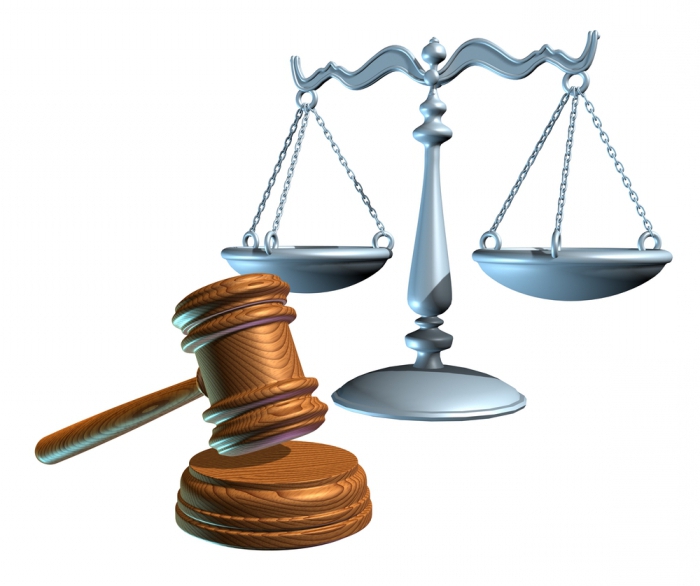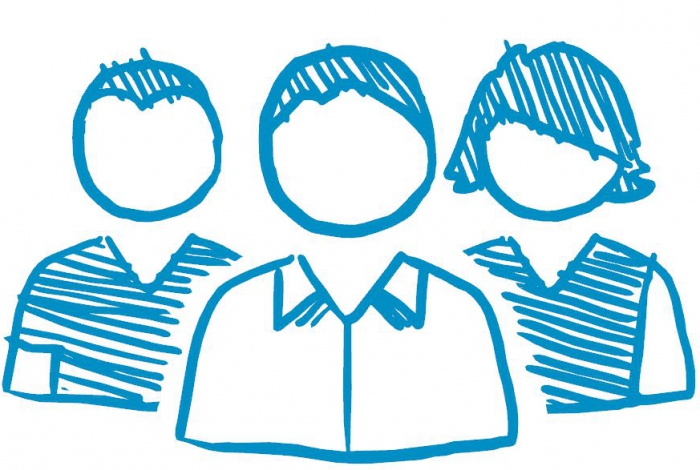Almost all societies live according to the norms of different nature. One way or another, people interact with society, adopt one or another model of behavior, precepts, traditions. Relevant rules may take the form of social norms. They are presented in a wide range of varieties. What are the specifics of a category such as social norms? The concept, signs, types of them - what are they?
Concept of social norm
First, let's try to define the term under study. What is a social norm? According to a common interpretation, this is a rule of human behavior that takes shape in society under the influence of various social factors. This is the difference between the considered norms and mathematical or technical rules, which are developed to a much lesser extent by society.

Moreover, for the exact sciences, the social factor of the origin of norms is practically not peculiar. Apart from the social factor, significant mechanisms that influence the formation of the rules in question are traced in a historical, cultural and legal context.
Signs of Norms
Consider the main features that characterize social norms. First, the corresponding type of rule is regulatory. That is, they are designed to adjust the behavior of each person so that it satisfies social criteria in terms of morality, ideology and other elements of social communications. Secondly, social norms, along with normative acts (and this unites them in many ways), are universal. That is, they are not aimed at a specific citizen, it is assumed that society as a whole or any of its social groups will follow it. Thirdly, the main types of social norms that are accepted in modern societies are predominantly imperative. As a rule, they directly prescribe a specific model of behavior.
Types of Norms
Consider what are the types of social norms. Modern researchers distinguish four of their main groups.

Firstly, the history of modern civilization in many respects looks like we know it, thanks to the crucial role of religious norms that do not change over the centuries and are passed on between generations of people.
Secondly, these are legal norms. They are characterized by universality, their implementation is guaranteed by the state. As a rule, documented in the form of laws.
Thirdly, these are the norms of morality. These are the rules of human behavior that have developed in society due to political, as well as historical and cultural reasons and expressing people's views on issues of justice, honor, dignity. The main factors that ensure the operation of moral standards are subjective beliefs, the opinion of society, and social impact.
Fourth, these are the norms of customs. The history and culture of the people is a key source of their origin. The fact is that only after a long period of time does one or another norm or model of behavior, repeated many times in the practice of social communications, become a custom that is familiar to all citizens living in a country or any of its regions.
Also, some researchers single out organizational or corporate norms into a separate category. These are the rules of conduct, predetermined by certain sources or authorized persons in structures, which, as a rule, are in the nature of legal entities. Corporate standards are usually documented in the charters, regulations, orders of the organization.This type of social norms is among the latest, as modern corporations in the usual legal status have begun to function relatively recently.
It can be noted that the types of social norms that we have listed in modern societies can be present in very different combinations. Depending on the cultural characteristics of a country, priorities may vary. The essence of the same categories of social norms can also be characterized by certain national specifics.

For example, if we are talking about the sources of law, then in the world there are several systems within which the regulation of public relations is carried out through appropriate norms. In particular, this is the English system case law and Roman, based on codified legal acts.
Let us consider in more detail the essence of each of the types of social norms, the list of which we have defined above.
Religious norms
Religious norms are rules of conduct that are determined by world religions. Their sources are various religious texts, sacred books, as well as sources of law published by spiritual organizations. Also, such norms can be interpreted in the books of authoritative figures of religious literature. The rules and regulations reflected in all of these types of sources have had a direct impact on legal and other types of norms that have developed in societies over time.
Legal regulations
Perhaps the most numerous modern form of social norms are legal. Researchers usually associate their occurrence with the fact that as communication between people in different languages intensified, when different cultures, traditions, customs were mixed, multinational states, large empires, political unions were built, compromise variants of rules and regulations were needed that reflected the interests of all social actors communications. Two or more people, obeying only their own customs, rules and norms, with the aim of establishing allied relations could develop a common set of generally binding regulations that suit everyone.

Gradually developed separate institutions designed to develop, adjust and ensure the implementation of legal norms - state bodies. In social communications, the concepts of “law”, “normative act” have become fixed. At the same time, along with political institutions that develop legal norms, the most popular customs and traditions of various peoples continue to play an important role. In those cases when the state in the person of law-making structures is not able to develop optimal approaches to the regulation of various social relations, then customs recognized by society are applied.
Any kind of social rule of law should satisfy the criteria that we identified at the beginning of the article, and above all - the public, focus on society. In this sense, it is not always correct to identify the term in question and a category such as a legal act. What is the reason for this? The fact is that legal acts can be non-normative, that is, addressed to a specific subject of legal relations, and not to society as a whole.
Moral standards
Moral norms are rules of behavior that govern social communication in the aspect of people's awareness of the criteria that determine the positive and negative qualities of a person. The origin of these norms can be very different. Moreover, the evolution of moral prescriptions is possible, on both sides: if, for example, society has long opposed the broadcasting of adult films on TV, considering it immoral, it can for some time approve of their screenings and even make them fashionable, but then return to the feeling that all these pictures are still too obscene to show them.Morality is not the most stable incubator of social norms, but one of the most contact ones: many people in various issues appeal primarily to morality, and then to other sources of norms.

Moreover, the interpretation of “morality” can be very subjective. Also, if one person considers this or that pattern of behavior to be the norm, then another can consider it only as a possible guideline. However, the established norms generally accepted at the level of a nation or a separate group of people in a more or less unambiguous form of norms in this category can become public. Types of social norms that imply social regulation include morality. In particular, categories such as humanism, decency, justice are interpreted by modern societies practically in the same criteria, and therefore are equally well accepted by people who form a nation or a separate social group.
Customs
Modern types of social norms also include customs. They are the rules of behavior that have become established in society over time. A person accepts them because they have been approved by other people many times before. The source of custom is sometimes difficult to determine, but it is not necessary: a person accepts these rules without thinking about their origin. It is enough for him to know that other people are doing the same. Researchers usually include traditions in the category of customs.

In a number of contexts, these terms may be synonymous. But tradition is often understood as a norm with a more pronounced imperative bias, while custom, in turn, is dispositive. Following the tradition, a person, as a rule, fulfills some requirements. Custom more often gives a certain guideline: a person has the right to choose it, but also he may well give preference, for example, to a legal norm prescribed in law. But in some cases it turns out the other way around. As we noted above, the state may not have legal norms optimized for a particular type of social relations, and in this case, just the same custom is used.
Corporate Standards
Considering modern types of social norms, we noted that there is such a category as corporate rules. Their specificity is primarily in localization: they operate only in the territory or in the jurisdiction of the object that developed them.

The corporate norm may be the order of the head of the company, the charter of the organization, the code adopted by the management, etc. The rules in question should not contradict other norms adopted in society or at the level of laws - this especially applies to labor law.
Norms and social regulations
We examined the essence of the term "social norms", the concept and their types. It will also be useful to study a number of narrow interpretations of the category we are studying. The norms in question in a number of contexts can be represented, for example, by social prescriptions. These are rules that determine how a person should relate to society as a whole or to any particular group thereof. At the same time, the essence of social prescriptions, depending on the specific model of the person’s environment, the specifics of the local community, may be different.
It can be noted that the category in question has some similarities with legal norms. For example, both are characterized by dispositions and sanctions. That is, there may be that part of the social prescription that defines the desired behavior of a person, as well as that which presumes a certain reaction of the society in case of failure to perform the required actions on the part of the subject. In the scientific community, there is a point of view according to which legal norms should be considered part of social requirements that have evolved from informal principles to generally accepted, and in some cases codified, laws that have come out in the form of laws.
Norms and technical regulations
Studying social norms, the concept and their types, it is useful to consider a category such as technical rules. These are sources that to a lesser extent reflect the specifics of human interaction with society. As a rule, technical rules relate to the communication of people with nature. The nature of these standards can be very different. Technical rules may affect the economic aspect related, for example, to the rational use of natural resources, environmental issues. Norms of proper nutrition also apply to this category. Therefore, the practical significance of these rules is not inferior to the influence that these or other types of social norms of behavior can have. But both of these rules are united by the fact that they are of a social nature, that is, they are aimed at an indefinite circle of subjects.
Having examined the signs and types of social norms, we will try to summarize our study. The most convenient option for this is to present the data in a table. In it, we can reflect examples of each type of social norms. We also indicate the key sources for them, characterize their specifics. A table containing basic types of social norms may look like this.
| Type of norms | Main source | Characteristics, value for society |
| Religious | Holy books, annals, works of authoritative religious authors. | They prescribe to people models of behavior based on spirituality, love for one's neighbor, faith. They have extremely important civilizational significance. Invariably transmitted between different generations of people. |
| Legal | Written source of law (law, precedent, decree, regulation). | They appeared as a tool of compromise between different groups of people, nations. The main instrument for regulating public relations in modern states. |
| Moral | Society, its individual social groups, in some cases - individual individuals whose opinion has weight in society. | May be characterized by some volatility, subjective perception. However, if society adopts key principles, they can acquire a social character. |
| Customs | Society in a historical context. | They do not require an authoritative source, they are accepted by a person on the basis of repeated use by other people. In some cases, they can replace legal norms. |
| Corporate | Corporate regulations (orders, instructions, charters). | Characterized by locality. In fact, they are part of the legal system, as they should not contradict regulatory acts at the level of laws. |
Thus, we investigated the basic theoretical concepts regarding the nature and role of social norms. If we come across an examination ticket, in which there will be the task “Define the types of social norms”, then we have every chance to successfully answer his questions.



